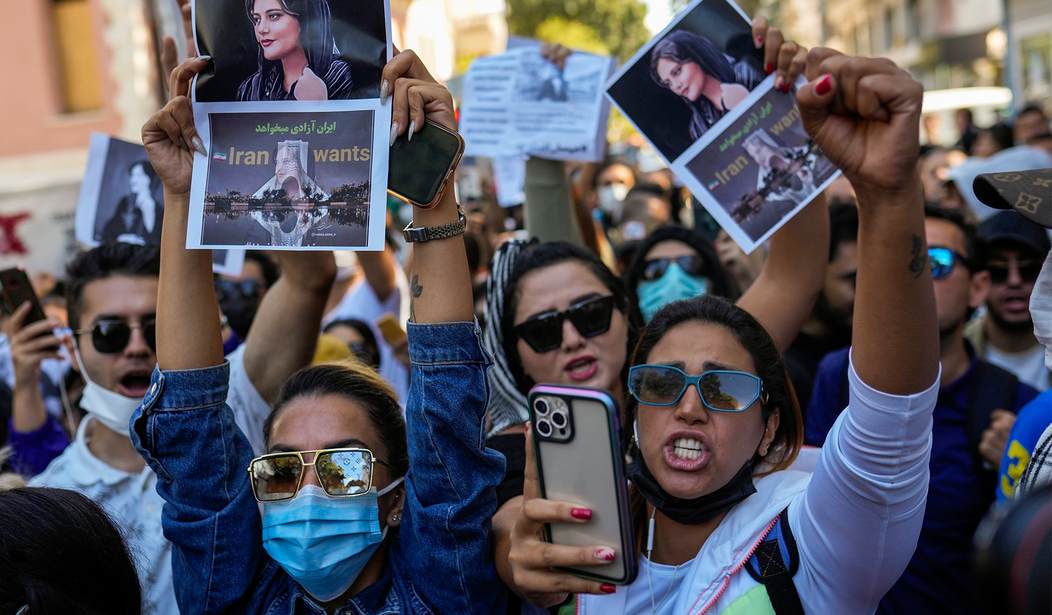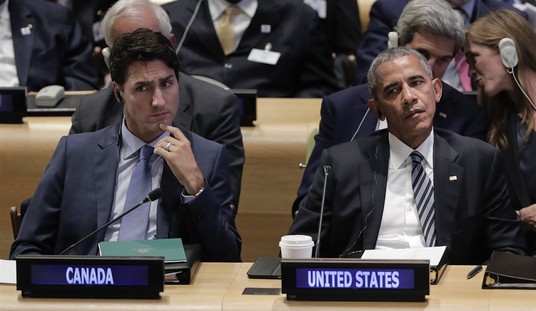I've been covering Iranian politics since the late 1980s and I've never seen the regime so scared.
The anti-hijab protests sparked by the death of the young Kurdish woman, Mahsa Amini, while in the custody of the morality police, were among the bloodiest in the post-Khomenei regime. At least 550 Iranians, mostly women and 69 children, were killed. Information obtained by Human Rights Activists in Iran (HRANA) show most of the deaths were from live bullets.
The street protests were squelched by a massive police and army presence deployed in the major cities. Whenever the call went out for a protest, the authorities rushed police to the site and arrested anyone who showed up. At least 20,000 Iranians were incarcerated.
But the women weren't giving up. Risking jail time or worse, many women still refused to wear the hijab. Their courage inspired many men to join them and from one end of the country to another, small protests spread on social media kept the spirit of rebellion alive.
How has this activism affected politics in Iran?
After the death of Iranian President Ebrahim Raisi in a plane crash last month. a new election was scheduled for June 29. Of the five candidates approved by the Guardian Council to run in the election, all five have sought to distance themselves from the Hijab law and its brutal enforcers.
“Elections aside, politics aside, under no circumstances should we treat Iranian women with such cruelty,” Mustafa Pourmohammadi, a conservative presidential candidate and cleric with senior roles in intelligence, said in a round-table discussion on state television last week.
It should be noted that Mr. Pourmohammadi was not talking about the hijab being cruel. He was saying that cruelly enforcing the law instead of "educating women" about the blessings of the hijab was the problem.
But just a few short years ago, the clerical fascists who run Iran were in agreement about cracking down on women who didn't wear the hijab properly. That was Mahsa Amini's crime. And she paid for it with her life.
It is unlikely that the law will be annulled, and it remains unclear whether a new president can soften enforcement. Different administrations have adopted looser or stricter approaches to hijab. Ebrahim Raisi, the president whose death in a helicopter crash in May prompted emergency elections, had imposed some of the harshest crackdowns on women.
Still, some women’s rights activists and analysts in Iran say forcing the issue to the table during elections is in itself an accomplishment. It shows that the “Women, Life, Freedom” movement of civil disobedience, which began nearly two years ago, has become too big to ignore.
Fatemeh Hassani, 42, a sociologist in Tehran, said the fact that the hijab had become an election issue is a victory itself.
She told the New York Times in a telephone interview that women had been “effective in influencing the country’s domestic policies and forcing the government to recognize their demands for more rights.”
Masoud Pezeshkian is the reform candidate. He doesn't have much of a chance to win and even if he did, the vote counters in Tehran would see to it that he lost.
“We will not be able to force women to wear the hijab,” he said during the debate on Friday. “Will arrests, confrontations, and shameful behavior resolve this issue?”
Women represent about half of Iran’s 61 million eligible voters. Although voter apathy is high among critics of the government, opposition to the hijab law and the morality police is no longer confined to them. It has transcended gender, religious and class lines, and now some of the loudest complaints come from religious people and conservatives, the backbone of the government’s constituents.
They see the writing on the wall. The regime is trying to avoid a youth convulsion. Demographics are not on the side of the clerics. More than 60% of the Iranian population is under 30 years old and their unemployment rate is more than 23%. This is a bomb waiting to explode unless they can keep the lid on.
Related: The U.S. Continues to Fund the Taliban Despite Pledges Not to Do So
Easing up on mandatory hijab-wearing is a gamble. Allowing women to walk around bareheaded is not the answer, as Ronald Reagan pointed out in a question-and-answer session with Russian students on his visit to meet with Mikhail Gorbachev in 1988.
"At the same time, we should remember that reform that is not institutionalized will always be insecure. Such freedom will always be looking over its shoulder. A bird on a tether, no matter how long the rope, can always be pulled back. And that is why, in my conversation with General Secretary Gorbachev, I have spoken of how important it is to institutionalize change"
Wise words. Will the mullahs listen?









